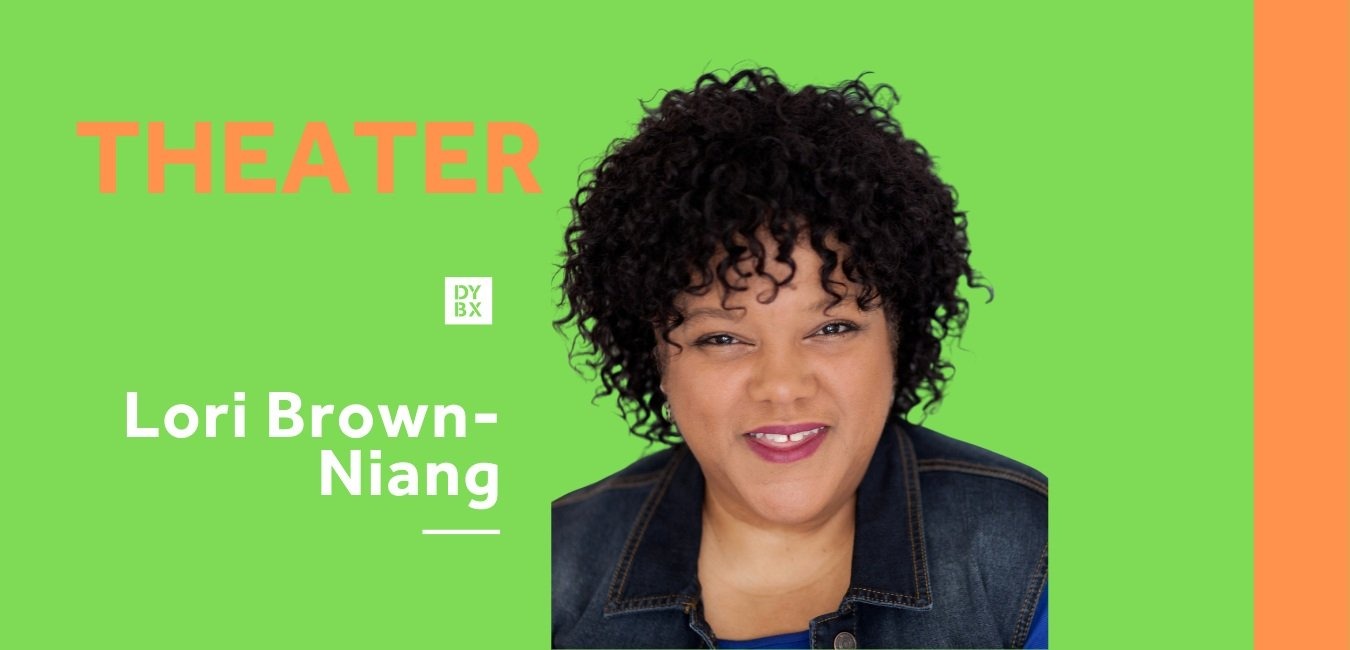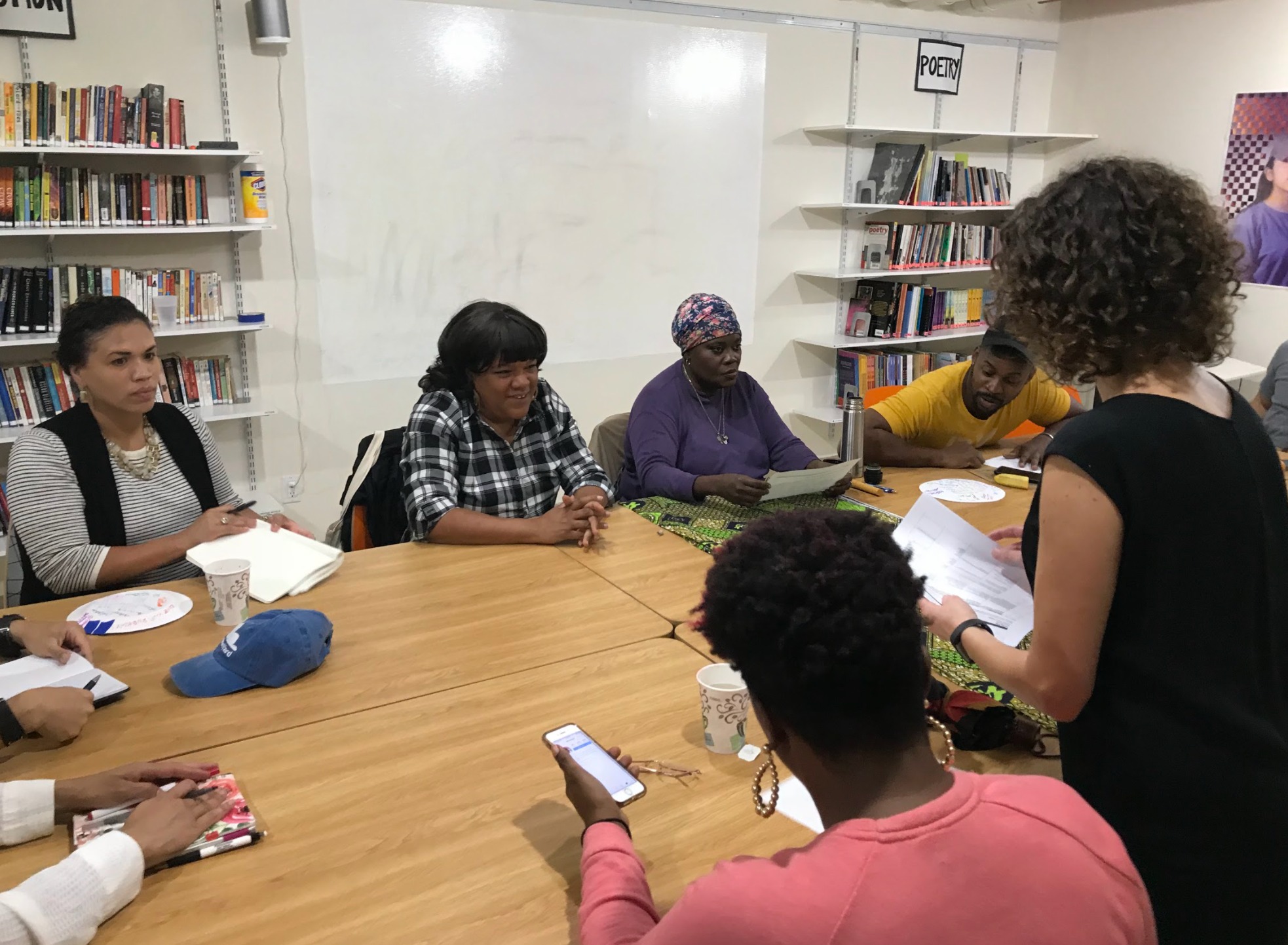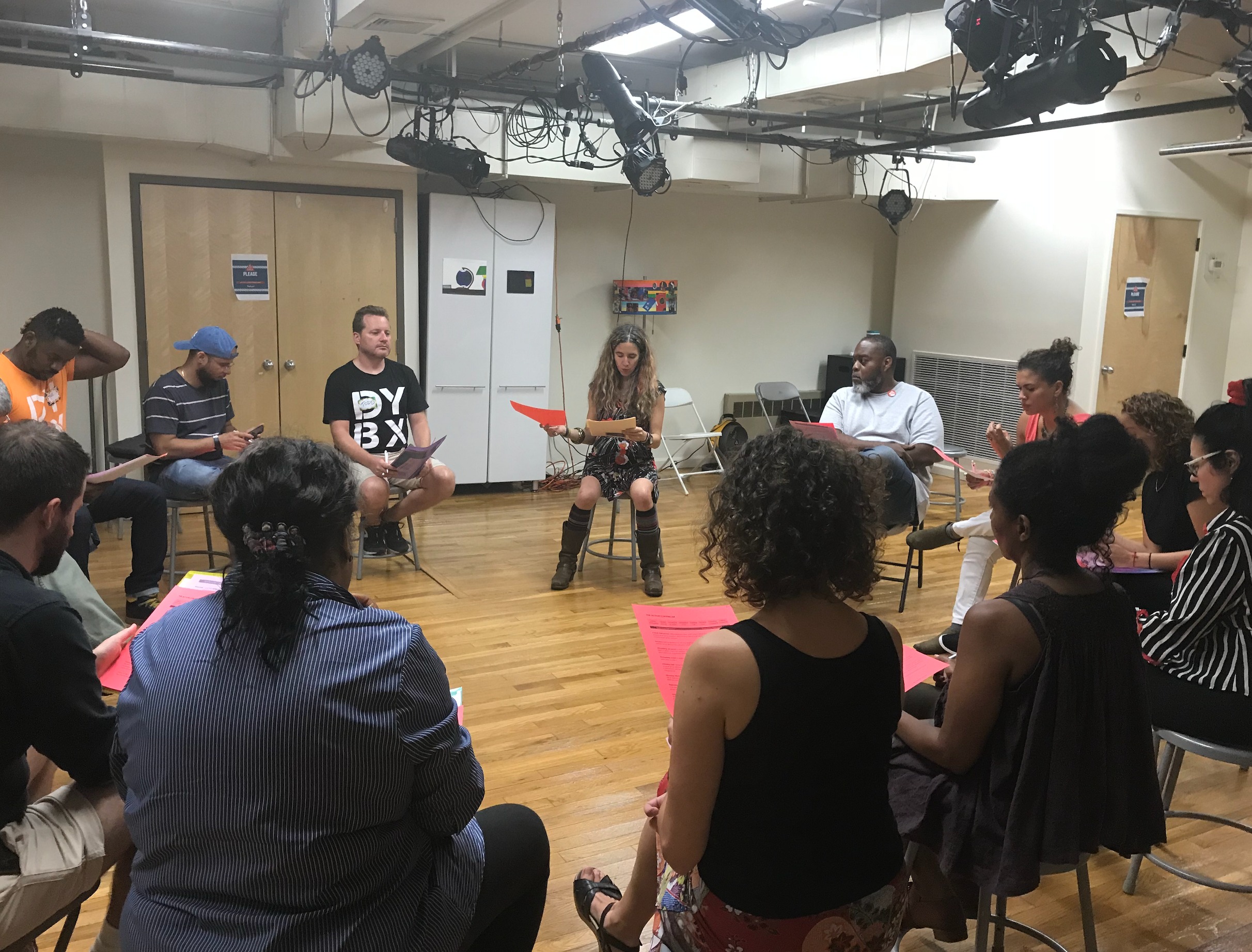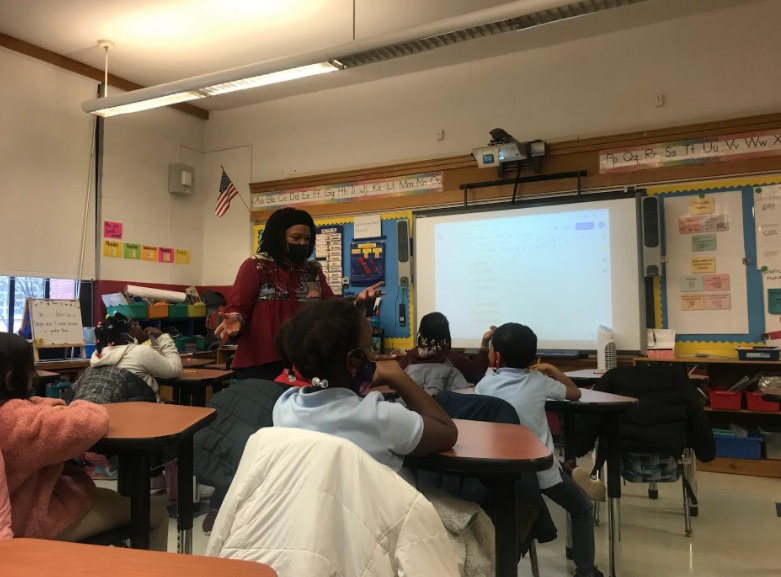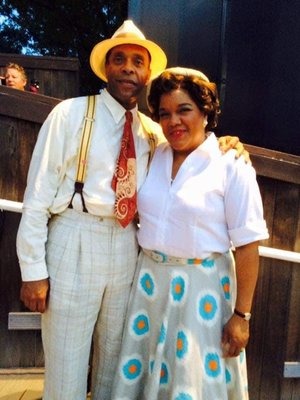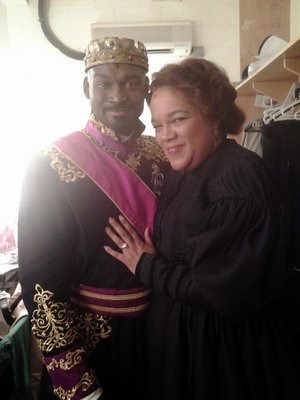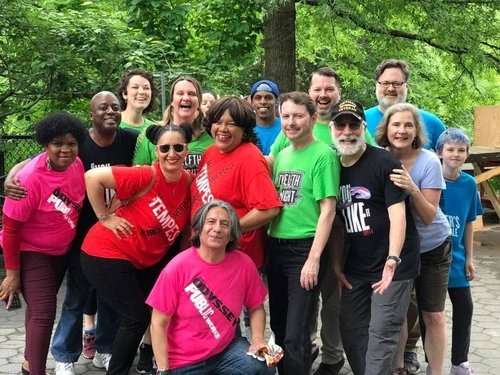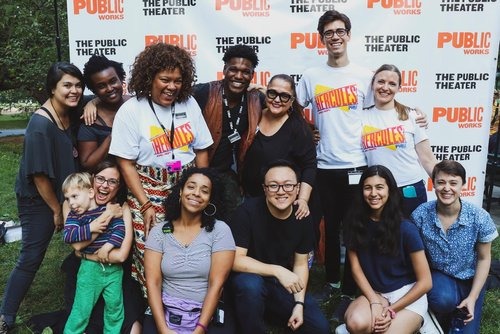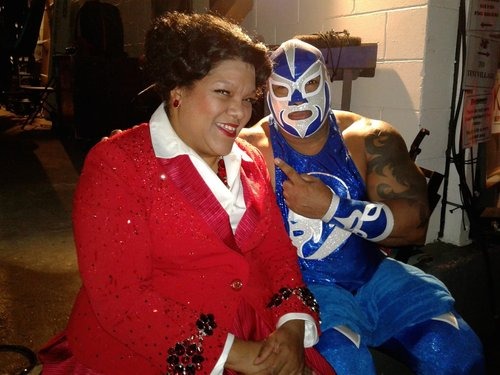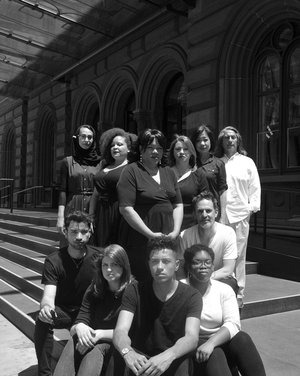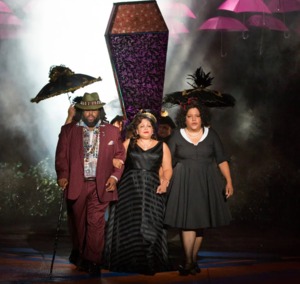Lori Brown Case Study
Liberation Through History And Theater
Lori Brown-Niang has been working in her field for 27 years – Since the mid to late 1990’s. The best skills she says she brings to her job are her connection to the children, creating a safe space to take creative risk and acting talent. Someone Lori admires is her mentor, Janet Rodriguez because she is talented, intelligent, brave, compassionate and woke. Lori has three pet peeves: parents who curse at and belittle their children instead of lifting them up, folks who ‘ judge a book by its cover’ and dishonesty. Skills that Lori has that no one knows about? She’s a really good cook and gives excellent advice. Three words that describe Lori are talented, loyal and dynamic. When she isn’t working, she’s happiest spending time with her son. Some causes she cares about are voter suppression, BLM, and racial equity. Lori wants people to remember her as a dedicated mother, dynamic teaching artist, expressive actress, social activist and a loyal friend.
Interviewed by Denisse Cotto Reyes, DY Alum
TEACHING AT DREAMYARD
Denisse: What do you like most about teaching?
Lori: I like the moment when a student gets it and I see the “ah ha” moment. I like opening the world up to children so that they can see past their circumstances.
Denisse: What do you teach and why?
Lori: I teach theater because I love theater and my mother taught me that if you love what you do it makes going to work easy.
Denisse: How did you get into teaching?
Lori: I got a job as a teaching artist for The Creative Arts Team and fell in love with the way it combines my love of theater and my love of working with kids.
Denisse: Tell us about a typical class at Marble Hill … Where do you teach? Do you work with another educator in the classroom?
Lori: I teach in a classroom or online. There is a DOE teaching partner present. The class is slotted for two hours but I teach for 90min.
When they all tap into that sense of fun together it knocks down the barriers that make them not want to be vulnerable.
— Lori Brown-Niang
Denisse: How do you and your partner teacher plan your classes together? How do you negotiate different ideas or approaches that come up?
Lori: I come up with the big ideas, the unit plans and curriculum maps. I run them by the teacher and get their feedback and see what they can bring to the table regarding the subject. Then I create all of the individual lesson plans.
Denisse: How do you support community building in your class? How do you make space for them to bond and get to know each other?
Lori: I support it through Do Now’s, Warm ups and group work. An example of a warm up would be getting them to act and move their bodies in silly ways. When they all tap into that sense of fun together it knocks down the barriers that make them not want to be vulnerable. An example of a ‘do now’ would be at the top of class, I’ll have an activity for them to do. For example they can find five people who were born in the same season as them or have a brother but not a sister, have a pet, were born in a different country etc. This type of activity gets them talking about things that they wouldn’t usually talk about and making personal connections.
PROFESSIONAL DEVELOPMENT
Denisse: How has DreamYard supported you in your classrooms?
Lori: Admin has come in and observed and taken pictures and video.
Denisse: How has DreamYard’s professional development helped you build your classroom curriculum?
Lori: I love professional development. It sparks new ideas and keeps things fresh and popping! The themes of the year help guide what I will teach.
Denisse: How would you describe a typical DreamYard professional development event?
Lori: Innovative and informative. I love the opportunity to learn new things and keep my creative juices flowing. The folks who create the professional developments take great pains to bring us knowledge and experiences that will expand our abilities to create social justice curricula. One recent example was that we meet at a cafe, ate and went over the agenda, did some writing/art making, shared what we had created, went over the nuts and bolts of the upcoming school year (housekeeping) and then went across the street to an independent bookstore where we were able to pick out any book that we wanted and DY paid for it.
Denisse: How has professional development changed at DreamYard since Covid?
Lori: Everything has to be online over ZOOM.
Denisse: What workshops do you remember taking? Did you take anything out of your comfort zone or new to you?
Lori: Anything where I have to draw is completely out of my comfort zone but I got a lot from a workshop that I did with Austin Greene because he broke it down into shapes.
VOTE SUPPRESSION
Denisse: What social justice topics do you usually discuss at DreamYard?
Lori: Racism, equality, food deserts, red lining, voting rights and responsibilities.
Denisse: What are the students at Marble Hill working on at the moment?
Lori: Voter suppression, inspired by Stacy Abrams’ “Fair Fight 2020”.
Denisse: What inspired you to teach about voter suppression this semester?
Lori: The climate of racism and bigotry inspired by the “MAGA” folks inspired me to teach about voter suppression. America was never great for black and brown folks. We have had to fight for everything since we were brought here in the bellies of slave ships.
If you don’t know where you’ve been how can you know where you’re going?
— Lori Brown-Niang
Denisse: How are you relating the topic of voter suppression to your students’ current lives?
Lori: Lily Tomlin said “Maybe if we listened to it, history would stop repeating itself.” If you don’t know where you’ve been how can you know where you’re going? The students were pessimistic and did not think that voting changes things and I wanted to change that mindset. I asked them that if their vote wasn’t important why are the powers that be trying to take it away?
Denisse: How do you think creating characters that walked in the Selma march can help your students in analyzing our world today and its continuous struggles with racism and voter suppression?
Lori: There is a great American saying “You can’t understand someone until you’ve walked a mile in their shoes” (I think the original was from Native Americans and was moccasins not shoes) this highlights the importance of empathy in living a meaningful life. My first step was to get the students to care about the topic.
Denisse: I’m wondering how you developed your lesson plan around voter suppression. What research did you have to do beforehand?
Lori: I was disturbed about the prospect of living through four more years of a trump presidency. I was familiar with Stacy Abrams’ Fair Fight 2020 initiative in Georgia and visited that website often. I knew that in order to get the students to care they would have to see what our people went through in order to get the right to vote for themselves. I showed them the movie “Selma” so that they can see art imitating life.
Denisse: The research done in your lesson plan was heavy on Stacy Abrams, please tell our readers, who is she?
Lori: Stacy Abrams is a political leader, voting rights activist and NY Times bestselling author. After serving for eleven years in the Georgia House of Representatives, seven as Democratic Leader, in 2018 she became the democratic nominee for Governor of Georgia.
I am free to teach them the things that I feel are important and this way the work outlives me when I’m gone.
— Lori Brown-Niang
Denisse: What were some of the responses from your students you received back about Stacy Adams stating that voter suppression is more insidious now than before?
Lori: Their minds were blown because they were able to compare and contrast the blatant ways votes were suppressed in the past during the civil right era and the insidious way that it happens now.
Denisse: How can voter suppression and gerrymandering help your students understand privilege and power? And how does studying these topics help them build empathy for social justice movements happening today?
Lori: Those who make the rules have the power. We give them that power by voting them into office. We need to vote for the folks that truly represent what we need from our government for it to be of, for and by the people. Exposure creates empathy.
Denisse: What are some of the ritual activities that you do in your class (ie SpongeBob rainbow hands warm-up and the mantra at the end)? How do these support your students?
Lori: The activities I do in class create a safe space and a sense of community. They break down barriers and allow the creative process to flow. They range from icebreaker activities to discussions with post-its.
Denisse: Earlier in the year to build foundational theater skills, your students were practicing and sharing monologues. How did you help the students write such difficult stories? What inspired them? How did you get them to write about heavy topics like betrayal, abandonment, same-sex relationships, etc?
Lori: Give them examples of how artists use their art to speak to the world.Show videos of folks like Daniel Beaty and Sarah Jones. Show the folks that came before us like Paul Robeson and Sidney Poitier. Sharing personal experiences from the start helps to create a safe space for them to take a creative risk.
Denisse: How does your liberation connect to your students’ liberation?
Lori: I am free to teach them the things that I feel are important and this way the work outlives me when I’m gone.
TEACHING THROUGH COVID
Lori Teaching Middle School In 2022
Denisse: How has COVID changed their classes and teaching style? What is your advice or best practices they’d like to share with other TAs?
Lori: COVID has taken away the personal connection that being in the same physical space provides. I am still very angry about that. The best advice I can give a TA is to get to know the folks that work at the school. Eat in the staff lunchroom. Become involved in the community of the school. Buy some girl scout cookies from the custodian. If you’re going out for a coffee offer to get one for the school safety officer. Don’t be on time, be early. Treat people the way you want to be treated because karma is real.
Denisse: What has been challenging and or rewarding teaching from a classroom setting to now interacting with your students through google classroom?
Lori: I am glad that I still get to connect with the students but there is a constant challenge of them not wanting to be on camera.
Denisse: With all the sudden changes Covid-19 has brought, what are some ways you’ve been getting support from DreamYard?
Lori: DY has sent home testing kits and masks, that was a big help. DY is very serious about protecting us. We lost a beloved colleague Vice Principal Omara Flores of PS/MS 95 early in the pandemic on April 6th 2020. She was a beacon of light. Any creative idea I came up with she supported it 100%. One of the ways I honor her memory is to be diligent about social distancing, mask wearing and sanitizing.
